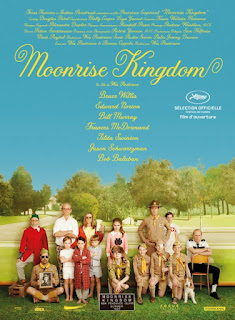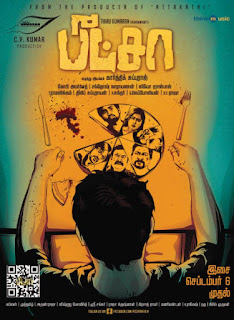To us, a character going missing may seem like a big deal, but to her family, it is just another day at the office. It is hard to believe a person who has been crying wolf all her life. The plight of a person with such an unpredictable disposition and that of her family unable to see the bigger picture has been portrayed with much sincerity without any sort of melodrama. Viji Chandrasekhar's performance is easily the film's high point.
I found most parts of the film endearing, but it became an unrecognizable monster during the final act- right after a major revelation. Appearing like an awkward cross between commercial and indie cinema, the movie loses most of its charm during a club dance sequence. The film worked well when it was being itself, without any sort of commercial aspirations. I loved the film for its subtlety before it went explicit and became "message oriented".
I didn't care much for the contrasting life lead by the other important woman in the film, who chose to not get married. She's visibly an antithesis of everything we know about Nirmala. What I don't get is which incident from the evening triggered a change of heart in her. The character portrayed by Jayaprakash is absolutely pointless. Are we to gather corrupt politicians are also capable of gate-crashing a party and having a good time? Is he supposed to be some sort of a comic relief? Because I don't see how the film would be any different without him. Also, the whole subplot about some Telugu-speaking IAS officer kind of felt incomplete. A large section of the crowd at my screening were friends of the director and they cheered every time a face known to them first appeared. I just hope the writer didn't just add a string of characters just to cast some of her friends.
Throughout the film, I was unable to shake the feeling that I was watching a better written television show. I don't mind the lack of a cinematic feel as much as I mind the clumsiness of a few scenes. Shooting digital lent the film this odd realism it didn't work to capture. On the filpside, this realism highlighed the bad acting of a few actors with tiny speaking roles. Yes, I can choose to not criticise these issues since this happens to be the director's first film and was produced on a shoestring budget; but it kept niggling me; I had to put it out there. The non-linear narrative sure helps, though.
Aarohanam is a very personal film, attempting to do some good by creating awareness about a compelling health concern. I wouldn't call it self-important, but in my opinion, it fails to do better because it lets the feeling escape that it knows it is doing good. Like its lead character, the film is filled with highs and lows. I hate to put it this way but Aarohanam simply doesn't offer enough to chew on.







